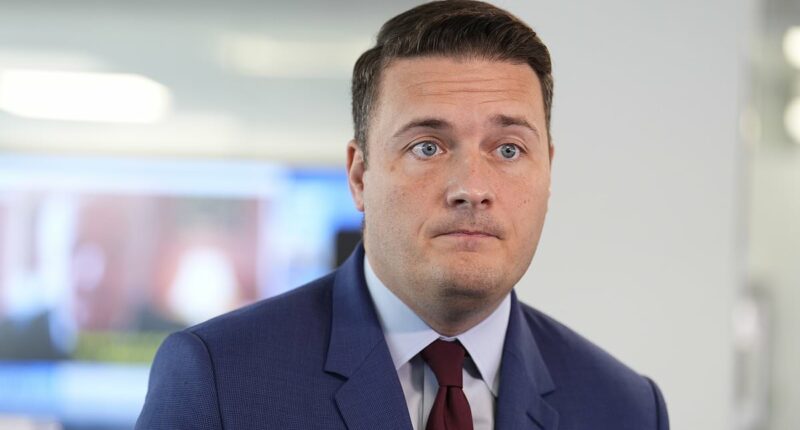Share this @internewscast.com
Delays in the rollout of screening clinics for a bone-thinning disease are putting women’s lives at risk, say campaigners.
In a critical letter addressed to Health Secretary Wes Streeting, eight organizations raise concerns that thousands could face avoidable deaths if certain regions in Britain lack fracture liaison services (FLS), essential for the early detection of osteoporosis.
The disease affects 3.5 million people in the UK and one in two women over 50 will break a bone because of osteoporosis.
The Mail on Sunday launched a campaign in 2023 to expand FLS to every part of England, backed by the Royal Osteoporosis Society.
The Government has committed to a full FLS rollout by 2030.
However, the organisations, including the British Menopause Society and the Royal Osteoporosis Society, fear that it is not happening fast enough.
The letter – first seen by this newspaper – says: ‘We are concerned that signs of delay have begun to emerge.
‘Should implementation not commence until 2027, 2028, or 2029, approximately 2,500 individuals per year will face preventable fatalities in the interim, predominantly women, with thousands more enduring unnecessary pain and disability.

In a critical letter addressed to Health Secretary Wes Streeting, eight organizations raise concerns that thousands could face avoidable deaths if certain regions in Britain lack fracture liaison services (FLS), essential for the early detection of osteoporosis.

The disease affects 3.5 million people in the UK and one in two women over 50 will break a bone because of osteoporosis
‘Women’s health issues have too often been delayed or sidelined in the past. We cannot let this be another example.’
The goal of FLS is to identify potential bone fractures earlier in patients’ lives through a bone density test known as a DEXA scan. When osteoporosis is detected early, patients can be prescribed bone-strengthening medications sooner, reducing the likelihood of fractures.
The drugs cost as little as £1 a week per patient and can prevent life threatening hip fractures.
According to the National Institute For Health And Clinical Excellence, more than 25 percent of hip fracture patients die within a year, with one in ten succumbing within a month.
The Royal Osteoporosis Society estimates that 2,500 deaths occur annually due to preventable hip fractures. Their analysis indicates that osteoporosis sufferers may experience 74,000 avoidable fractures by 2030, which includes 31,000 potentially life-threatening hip fractures.
Research also suggests that full rollout of FLS will slash waiting lists. Analysis by the Royal Osteoporosis Society shows 36,000 hospital beds could be made available every winter by fulfilling the pledge.
Earlier this year this newspaper revealed that people in parts of Britain with no screening for osteoporosis are suffering more life-threatening hip fractures – with the highest fracture rate being in North East areas which do not have FLS.
This newspaper’s War on Osteoporosis campaign has been spearheaded by the Mail’s Group Business Editor Ruth Sunderland after her osteoporosis diagnosis.

The Queen said that the campaign by Mail Group Business Editor Ruth Sunderland has ‘really has put osteoporosis on the map’
The Queen said that Ruth has ‘really has put osteoporosis on the map’. Yet despite the Royal endorsement, campaigners say the rollout of FLS across Britain is not happening fast enough.
‘Women often tell me they practically expect to be sent to the back of the queue in the NHS, and they think this explains why two-thirds of osteoporosis patients are overlooked for treatment,’ says Ruth Wakeman, a director at the Royal Osteoporosis Society.
‘Prevention of fractures is an expensive blind spot in the NHS which we need Wes Streeting to fix – standing up for post-menopausal women who feel chronically overlooked.’
A Department of Health and Social Care spokesman said: ‘We remain committed to rolling out fracture liaison services across every part of the country by 2030, and on top of this, people will also be able to bypass their GPs thanks to our transformation of the NHS App.’












